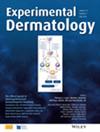Basophil-Derived IL-4 Production and Its Potential Pro-Tumoural Role in Th2-Polarisation Within Sentinel Lymph Nodes of Primary Cutaneous Melanoma
Abstract
Chronic inflammation in the tumour microenvironment (TME) via Th2-polarisation promotes melanoma progression and metastasis, making it a target for immunotherapy. Interleukin (IL)-4 is considered essential for Th2-polarisation in the TME; however, its source remains unknown. Basophils have been postulated as one of its sources. Basophil-derived IL-4 contributes to Th2-polarisation in parasitic infections and allergic diseases and has been implicated in tumour immunity. To identify basophil infiltration into the TME of human melanoma skin lesions and sentinel lymph nodes (SLNs) and demonstrate that basophils produce IL-4. Immunohistochemistry (IHC) with a basophil-specific BB1 antibody and in situ hybridisation. Basophils tended to infiltrate skin lesions at Stage II or later. Higher numbers of infiltrating basophils correlated with the Breslow depth and a shorter progression-free survival, indicating an association with poor prognosis. In SLNs, basophils infiltrated at early stages without metastasis (Stages I and II), with the number of infiltrating basophils being significantly higher in Stage II than in Stage I. IHC revealed that IL-4 levels were also significantly elevated in Stage II SLNs compared to Stage I SLNs. Furthermore, a positive correlation was observed between the number of basophils infiltrating SLNs and IL-4 expression. In situ hybridisation confirmed that basophils expressed IL4. These findings are consistent with previous reports of early-stage melanoma SLNs having a Th2-environment and suggest that basophil-derived IL-4 may contribute to a metastasis-promoting environment in SLNs through Th2-polarisation. Basophils may represent potential immunotherapeutic targets for pro-tumour changes that occur in SLNs in early-stage melanoma.

 求助内容:
求助内容: 应助结果提醒方式:
应助结果提醒方式:


